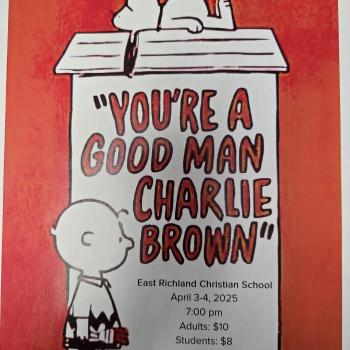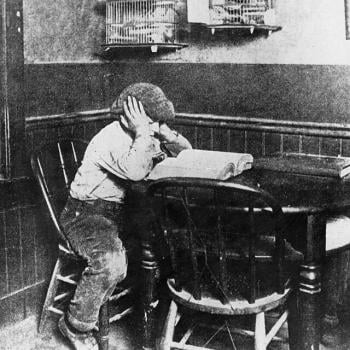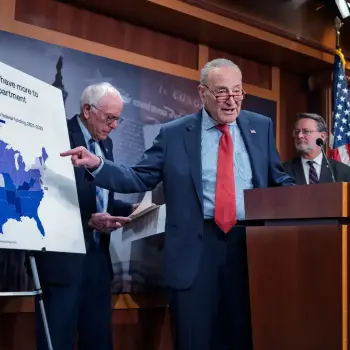Yes, it's true we have Hanukkah, whose fortunate arrival as a winter solstice holiday has blessed us with the "American-Jewish Christmas," one of the great acts of psychological self-defense in the annals of world history.
 Of course, it's not the "Jewish Christmas" in any substantive sense. It's a minor holiday in the Jewish pantheon, a nothing yontiff [the Yiddish word for Jewish festival] really, bolstered historically by rabbinic appropriation. In Israel they don't celebrate it as opulently as we do here. Nor did great-great bubbe and zayde back in the shtetl, who may have given some gelt, played a bit of dreidel, and lit the menorah, but probably not much more. I know. I myself tell this to people every year.
Of course, it's not the "Jewish Christmas" in any substantive sense. It's a minor holiday in the Jewish pantheon, a nothing yontiff [the Yiddish word for Jewish festival] really, bolstered historically by rabbinic appropriation. In Israel they don't celebrate it as opulently as we do here. Nor did great-great bubbe and zayde back in the shtetl, who may have given some gelt, played a bit of dreidel, and lit the menorah, but probably not much more. I know. I myself tell this to people every year.
Hanukkah: Not the Jewish Christmas
But let's face it: In the American open society -- that is, in the cultural place in which all Jews live some of the time and in which most Jews live all of the time -- Hanukkah symbolically is exactly what it isn't in reality -- the Jewish Christmas, a substitute for what our kids can't have. How many moms and dads have gone into school with dreidlach and latkes, prepared to tell the tale of that tiny cruse of oil? How come we don't typically feel the urge to volunteer this kind of cultural information for our children's non-Jewish schoolmates when Purim or Shavuot are around the corner?
How many of us put up signs, send Hanukkah cards, buy excessive numbers of presents for our kids? Why else would we have multiple parties, give chocolate gelt until it's a gooey mess running down the kids' hands? Last year for this minor festival, I, myself, had no less than seven Hanukkah celebrations to attend, and I'm not that popular.
 And yet, eight nights of presents, gooey chocolate, parties galore, sufganiyot (jelly doughnuts), etc., even when coupled with a strong, selfrespecting Jewish identity, cannot obscure the fact that at Christmastime we are effectively not active participants in the goings-on. We may have office parties to go to, receive dinner invitations from Gentile friends; we may go to soup kitchens as a (highly) symbolic gesture of support; we may even have a tree and stockings in our homes. Nevertheless, as much a part of things as we naturally and rightfully felt ourselves to be at Thanksgiving, that's how remote we feel from the center of America when Christmas rolls around.
And yet, eight nights of presents, gooey chocolate, parties galore, sufganiyot (jelly doughnuts), etc., even when coupled with a strong, selfrespecting Jewish identity, cannot obscure the fact that at Christmastime we are effectively not active participants in the goings-on. We may have office parties to go to, receive dinner invitations from Gentile friends; we may go to soup kitchens as a (highly) symbolic gesture of support; we may even have a tree and stockings in our homes. Nevertheless, as much a part of things as we naturally and rightfully felt ourselves to be at Thanksgiving, that's how remote we feel from the center of America when Christmas rolls around.
And that's the dialectic: that this time of year draws us into, then apart from, the center of our society.
Given Thanksgiving, perhaps our psyches can survive intact and healthy the other extreme to which we are tossed one month later.
Rabbi Philip Cohen holds a Ph.D. from Brandeis University.




